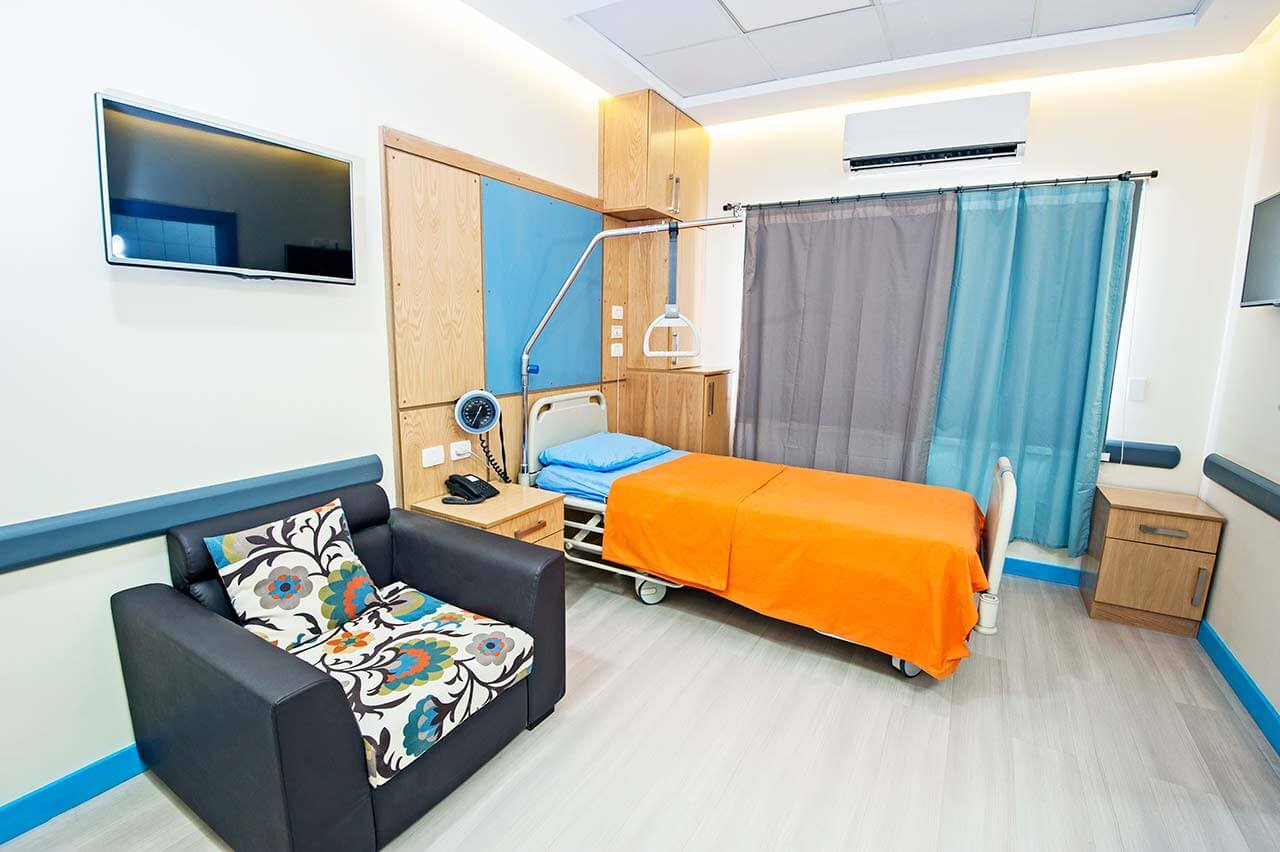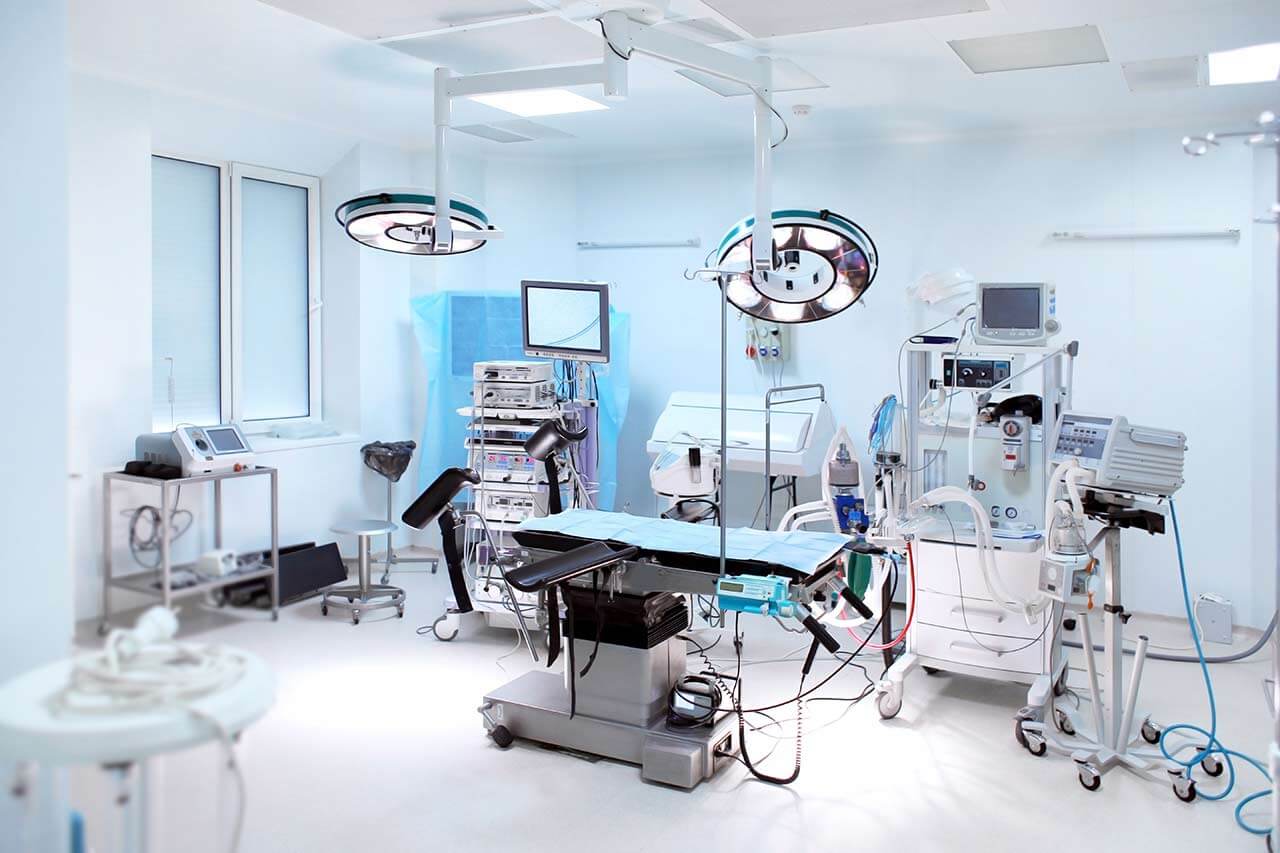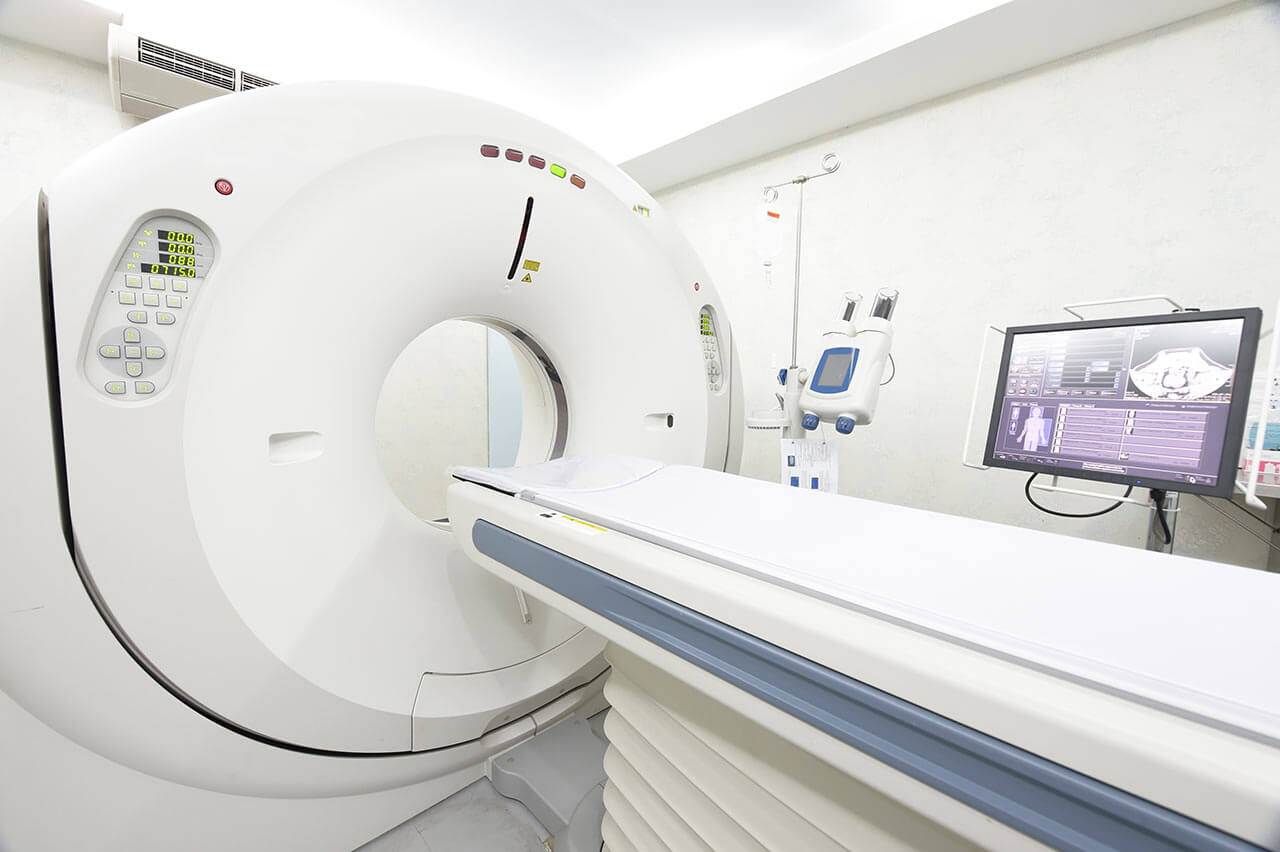
The program includes:
- Initial presentation in the clinic
- clinical history taking
- review of medical records
- physical examination
- urological examination
- laboratory tests:
- complete blood count
- clinical urine test and urine culture
- inflammation indicators (CRP, ESR)
- indicators of blood coagulation
- pelvic ultrasound
- cystoscopy
- CT scan (on indication 650 €)
- MRI scan (on indication 1200 €)
- nursing services
- consultation of related specialists
- consultation of the chief physician and all leading experts
- development of individual treatment plan
- written statement
Required documents
- Medical records
- Ultrasound scan (if available)
Service
You may also book:
 BookingHealth Price from:
BookingHealth Price from:
About the department
The Department of Adult and Pediatric Urology, Andrology at the University Hospital Carl Gustav Carus Dresden offers the full range of diagnostics and treatment of diseases of the reproductive organs and urinary system in men. Key attention is paid to the treatment of urologic cancers, benign prostatic hyperplasia, kidney stone disease and urinary incontinence in men and women. The department also specializes in kidney transplantation (in collaboration with the Department of Nephrology) and the treatment of andrological diseases in men, including infertility. To provide surgical treatment, the department uses sparing minimally invasive techniques and the da Vinci surgical system, which minimize the risk of complications and guarantee the fastest possible recovery of patients. The department is certified by the German Cancer Society (DKG) as a specialized Prostate and Kidney Cancer Center. The department annually admits more than 5,600 inpatients, which makes the urological medical facility one of the largest in Germany. All the department's doctors are highly qualified specialists in their field of expertise, so patients can be sure that they will receive high-quality treatment using the very latest therapeutic techniques. The department is headed by Prof. Dr. med. Christian Thomas.
The priority focuses of the department's work are the treatment of malignant diseases of the reproductive organs in men, as well as the urinary system in men and women: prostate, testicular, bladder, and kidney cancers. The therapeutic options range from modern conservative methods (for example, immunotherapy, chemotherapy) to minimally invasive and radical interventions to remove neoplasms. At the advanced stages of oncopathology, patients receive high-quality palliative care. Since the beginning of 2006, the department has had the da Vinci surgical system, which is effectively used for radical prostatectomy. This progressive device allows the doctors to carry out the most accurate incisions during surgery, minimizing blood loss, the risk of postoperative complications and infection, as well as guarantee rapid recovery. The department's specialists also have won an excellent reputation in the field of testicular cancer treatment.
A separate field of the department's specialization is the treatment of benign prostatic hyperplasia. Doctors have effective modern techniques, for example, drug therapy, classical resections, photoselective laser vaporization using the Greenlight® laser, as well as open surgery (adenomectomy) with a significant prostate gland enlargement. The optimal type of treatment is determined strictly on an individual basis, based on the patient's diagnostic results.
The department employs highly qualified doctors, who perfectly cope with the treatment of urologic diseases in children. Particular focus is made on the correction of congenital malformations, for example, hypospadias, phimosis, cryptorchidism, as well as functional bladder surgery for reflux or renal pelvic defects, and the treatment of urinary incontinence in children. The department's pediatric urologists have all the necessary technical resources to carry out the diagnostic examination and optimal treatment.
In the field of andrology, the department admits men suffering from erectile dysfunction, premature ejaculation, infertility, hormonal disorders and other pathologies. The department successfully performs surgery to repair the penile curvature. For erectile dysfunction and premature ejaculation treatment, drug therapy is mostly used. Men suffering from infertility are offered the TESE procedure – the extraction of sperm from the testicle for subsequent in vitro fertilization. Those patients who need chemotherapy or radiation therapy have the opportunity to undergo a cryopreservation procedure – sperm freezing. If a man has hormonal disorders detected, he will undergo comprehensive diagnostics, after which drug therapy will be prescribed for the normalization of the male sex hormone levels.
The department's key clinical focuses include:
- Diagnostics and treatment of prostate cancer
- Conservative treatment methods (such as chemotherapy)
- Minimally invasive surgery
- Radical surgery
- Robot-assisted surgery (da Vinci surgical system)
- Palliative care
- Diagnostics and treatment of kidney cancer
- Open interventions
- Laparoscopic interventions
- Organ-preserving surgery
- Total removal of the affected kidney
- Diagnostics and treatment of bladder cancer
- Transurethral resection
- Radical cystectomy
- All urinary diversion procedures (for example, bladder replacement, including orthotopic bladder formation, ileal bladder formation)
- Diagnostics and treatment of testicular cancer
- Chemotherapy
- Surgical treatment
- Diagnostics and treatment of benign prostatic hyperplasia
- Drug therapy
- Transurethral surgery (classical resections, photoselective laser vaporization using the Greenlight® laser)
- Open surgery (adenomectomy) with significantly enlarged prostate gland
- Diagnostics and treatment of kidney stone disease
- Extracorporeal shock wave lithotripsy
- Urethroscopic stone extraction
- Lithotripsy using mechanical or laser techniques
- Percutaneous endoscopic surgery to remove large kidney stones
- Kidney transplantation (in collaboration with the Department of Nephrology)
- Diagnostics and treatment of urologic diseases in children
- All types of urologic reconstructive procedures (for example, correction for hypospadias, renal pelvis abnormalities, phimosis and cryptorchidism)
- Urinary incontinence in children
- Urinary tract reconstructive surgery (minimally invasive and robot-assisted interventions)
- Diagnostics and treatment of urinary incontinence in women and men (for example, TVT surgery, Advance®, implantation of sphincter prostheses (AMS 800®))
- Diagnostics and treatment of andrologic diseases (infertility, erectile dysfunction, premature ejaculation, hormonal disorders)
- Testicular sperm extraction (TESE)
- Penile prosthesis implantation for erectile dysfunction
- Drug therapy for erectile dysfunction, premature ejaculation and hormonal disorders in men
- Other medical services
Curriculum vitae
Since January 2019, Prof. Dr. med. Christian Thomas has been heading the Department of Adult and Pediatric Urology, Andrology at the University Hospital Carl Gustav Carus Dresden The specialist has vast experience in surgical treatment of urological pathologies and genitourinary cancers. The doctor is also deservedly proud of his successful experience in the application of robot-assisted surgery in urology. Prior to becoming the Head Physician of the Department of Adult and Pediatric Urology, Andrology at the University Hospital Carl Gustav Carus Dresden, Prof. Christian Thomas worked as the Managing Senior Physician in the Department of Adult and Pediatric Urology at the University Hospital Mainz. The specialist received his medical education at the Faculty of Medicine of the University of Hamburg.
Prof. Thomas has more than 25 years of successful clinical practice. The doctor's priority clinical interests include the treatment of benign prostatic hyperplasia, erectile dysfunction, urinary tract infections, kidney diseases, including kidney stone disease, as well as minimally invasive and robot-assisted surgical interventions for urologic diseases.
Photo: (с) depositphotos
About hospital
According to the reputable Focus magazine, the University Hospital Carl Gustav Carus Dresden ranks among the top five German hospitals!
The hospital is the benchmark for modern high-quality medicine. Positioning itself as a maximum care medical facility, the hospital represents all medical fields. There are 26 specialized departments, 6 institutes and 17 interdisciplinary centers, which cooperate closely with the clinical and scientific facilities of the Faculty of Medicine. The basis of successful practice is excellent equipment, which is regularly updated, as well as highly qualified, experienced medical personnel: world famous doctors and professors work here for the benefit of patients.
In addition to its main goal of caring for patients, the hospital is also active in training and professional development of medical personnel, as well as in the field of public health care. The priority focus of the work is research activity, which allows the doctors to introduce the innovative diagnostic and therapeutic techniques into clinical practice.
A special feature of the hospital is also the diagnostics and treatment of rare diseases. State-of-the-art equipment and well-coordinated work of doctors of various medical specialties make it possible to timely recognize pathologies rarely encountered in medical practice and select the most effective therapy. Specialization in rare diseases include neurology, endocrinology, hematology/oncology, and rare autoimmune diseases.
The hospital has 1,410 beds for patient hospitalization. About 55,900 inpatients and more than 233,975 outpatients undergo treatment here annually. A large medical team, consisting of about 1,000 highly qualified doctors, as well as over 2,000 nursing staff take care of the patients' health. Each patient is guaranteed an individual approach and the most effective treatment in accordance with current clinical protocols.
It should be noted that the university hospital enjoys an impeccable reputation not only in Germany, but also far beyond its borders, including Arab countries, post-Soviet states, Great Britain and the United States. Patients from different parts of the world come here for high-quality treatment for diseases of any severity. The highest credit of patient confidence is the main indicator of the fruitful work of doctors.
Photo: (с) depositphotos
Accommodation in hospital
Patients rooms
The patients of the University Hospital Carl Gustav Carus Dresden live in comfortable rooms made in bright colors and equipped with everything necessary. The standard patient room includes an automatically adjustable bed, a bedside table with a sliding table, a wardrobe, a telephone and a TV. There is also Wi-Fi (free) in the patient rooms.
If desired, patients may live in enhanced comfort patient rooms. These patient rooms have a more sophisticated design, upholstered furniture and a safe for storing valuables.
Meals and Menus
The patients of the hospital are offered a tasty, healthy and varied three meals a day. The menu is based on local cuisine and seasonal food. If you for some reason do not eat certain products, please inform the medical staff of the hospital in advance, and you will be offered an individual menu. The nutrition provided in the hospital is certified in accordance with the quality standards of the German Nutrition Society (DGE) for catering in German hospitals.
Further details
Standard rooms include:
Religion
The religious services are available upon request.
Accompanying person
Your accompanying person may stay with you in your patient room or at the hotel of your choice during the inpatient program.
Hotel
You may stay at the hotel of your choice during the outpatient program. Our managers will support you for selecting the best option.
The hospital offers a full range of laboratory diagnostic procedures (general, hormonal, tests for tumor markers, infections, antibodies, etc.), genetic tests, various modifications of ultrasound scans, CT scans, MRI and PET / CT, angiography, myelography, biopsy and other examinations. Treatment with medications, endoscopic and robotic operations, stereotaxic interventions is carried out here, modern types of radiation therapy are also used. The hospital offers patients all the necessary therapeutic techniques.
- Cochlear implantation
- Deep brain stimulation
- Treatment of benign prostatic hyperplasia with green laser
- Da Vinci prostatectomy
- Bone marrow transplantation
These are head and neck tumors, hearloss, amyotrophic lateral sclerosis, epilepsy, Parkinson disease, infertility, malignant tumors of the reproductive system, congenital anomalies of the genital organs and the urinary system, urinary incontinence, blood clotting disorders, leukemia and other pathologies.
- Otolaryngology (Center for Cochlear Implantation)
- Neurology and Epileptology
- Urology
- Oncology
- Gastroenterology and Hepatology
About 1,000 highly qualified doctors work at the hospital.





